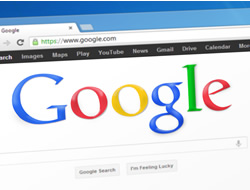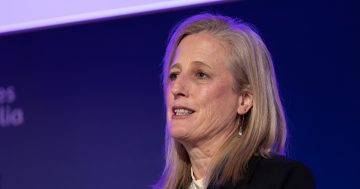Dieter Bohn* says Google’s controversial redesign of its search results has set him thinking about how much longer we can trust their algorithm.
 I have been reflecting a bit on the controversy du jour: Google’s redesigned search results.
I have been reflecting a bit on the controversy du jour: Google’s redesigned search results.
Google is trying to foreground sourcing and URLs, but in the process, it made its results look more like ads, or vice versa.
Bottom line: Google’s ads just look like search results now.
I’m thinking about it because I have to admit that I don’t personally hate the new favicon-plus-URL structure.
But I think that might be because I am not a normal consumer of web content.
I’ve been on the web since the late 1990s and I parse information out of URLs kind of without thinking about it.
(In fact, the relative decline of valuable information getting encoded into the URL is a thing that makes me sad.)
I admit that I am not a normal user.
I set up custom Chrome searches and export them to my other browsers.
I know what SERP means and the term kind of slips out in regular conversation sometimes.
I have opinions about AMP and its URL and caching structure.
I’m a weirdo.
As that weirdo, Google’s design makes perfect sense and it’s possible it might do the same for regular folk.
The new layout for search results is ugly at first glance — but then Google was always ugly until relatively recently.
I very quickly learned to unconsciously take in the information from the top favicon and URL-esque info without it really distracting me.
… Which is basically the problem.
Google’s using that same design language to identify its ads instead of much more obvious, visually distinct methods.
It’s consistent, I guess, but it also feels deceptive.
Recode’s Peter Kafka recently interviewed Buzzfeed CEO, Jonah Peretti, and Peretti said something really insightful: what if Google’s ads really aren’t that good?
What if Google is just taking credit for clicks on ads just because people would have been searching for that stuff anyway?
I’ve been thinking about it all day: what if Google ads actually aren’t that effective and the only reason they make so much is billions of people use Google?
The pressure to make them more effective would be fairly strong, then, wouldn’t it?
And it would get increasingly hard to resist that pressure over time.
I am old enough to remember using the search engines before Google.
I didn’t know how bad their search technology was compared with what was to come, but I did have to bounce between several of them to find what I wanted.
Knowing what was a good search for WebCrawler and what was good for Yahoo was one of my Power User Of The Internet skills.
So, when Google hit, I didn’t realise how powerful and good the PageRank technology was right away.
What I noticed right away is that I could trust the search results to be “organic” instead of paid and that there were no dark patterns tricking me into clicking on an ad.
One of the reasons Google won search in the first place with old people like me was that in addition to its superior technology, it drew a harder line against allowing paid advertisements into its search results than its competitors.
With other search engines, there was the problem of “paid inclusion,” which is the rare business practice that does exactly what the phrase means.
You never really knew if what you were seeing was the result of a web-crawling bot or a business deal.
This new ad layout doesn’t cross that line, but it’s definitely problematic and it definitely reduces my trust in Google’s results.
It’s not so much paid inclusion as paid occlusion.
Today, I still trust Google to not allow business dealings to affect the rankings of its organic results, but how much does that matter if most people can’t visually tell the difference at first glance?
And how much does that matter when certain sections of Google, like hotels and flights, do use paid inclusion?
And how much does that matter when business dealings very likely do affect the outcome of what you get when you use the next generation of search, the Google Assistant?
And most of all: if Google is willing to visually muddle ads, how long until its users lose trust in the algorithm itself?
With this change, Google is becoming what it once sought to overcome: AltaVista.
* Dieter Bohn is Executive Editor at The Verge. He tweets at @backlon.
This article first appeared at www.theverge.com/tech.











